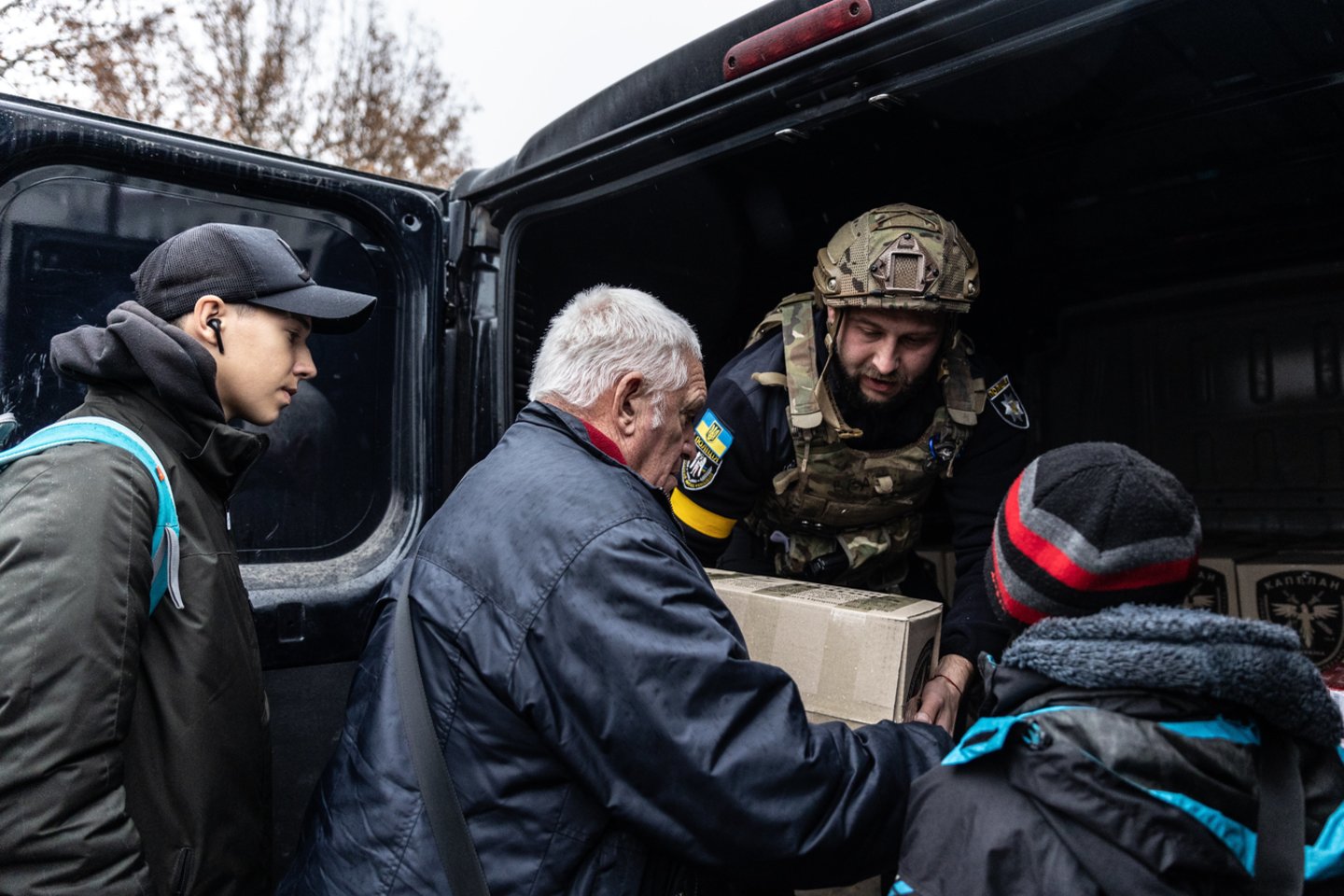At the governmental level, there are agreements between Ukraine and, say, Italy, Poland and Lithuania, within the framework of which support is provided with food, fuel, etc. In addition, some responsible state bodies, such as the Ministry of Foreign Affairs and the Ministry of Internal Affairs, communicate with the same state bodies in other countries. The second level of cooperation is civil society.
In the first weeks of the war, there was an enormous mobilisation of citizens in Lithuania, Poland, Slovakia and the Czech Republic through, for example, religious organisations, local Ukrainian communities and other active multidisciplinary organisations. In European countries with strong Catholic and Protestant sentiments, a very large amount of humanitarian aid was collected on the basis of religious communities. In addition, pastors acted as centres mobilising people in support of Ukraine.
There are masses of similar examples in German cities. Ukrainian communities and, accordingly, Ukrainian-Czech, Slovak, Polish and Lithuanian cooperation are robust in the countries of Eastern Europe. Ukrainians, who have lived in these countries for more than 20 years - in Prague, Bratislava, acted as "magnets" to which Poles, Lithuanians, and Czechs turned. They established cooperation with regions: Nikolaev, Donbas, and Kiev. It is also worth mentioning private and business foundations, international organisations, clubs and sports societies, which at one time or another have set up their humanitarian departments, collecting aid. Non-military humanitarian aid itself consists of several categories: the first and basic category is food.
The second is everything connected with hygiene. The third is a special category - children's food and clothes. The fourth is bedding, everything related to overnight accommodation. In practice, everything is already divided into different categories during customs clearance, and everyone who transports aid across the border fills out a declaration with 7-8 categories of humanitarian cargo.
Modes of delivery (logistics) of humanitarian cargo. In terms of transportation, there are now two modes of transport because the Russian Federation has blocked the sea and seized a number of ports, and air routes are inaccessible. This leaves only road and rail connections. Delivery methods are as follows: the first - is delivered directly from point A (foreign hub), such as Munich or Przemysl, to Nikolaev, Bucha, Ivankov (self-delivery from the EU territory and independent delivery in Ukraine). You yourself take a lorry, a 20-tonne truck, a 5-tonne truck, or a regular bus, and carry the goods, be responsible for them yourself. It is the most complicated way: it is not logistically simple, you spend time on customs, there are many other risks. And the delivery route itself is complicated - because you drive through the territory of Ukraine through numerous checkpoints, and this significantly delays delivery, especially in the East, in Dnipro, in Donbas.
The second option is the delivery by third parties (international foundations or organisations) of humanitarian aid from the EU to various cities in Ukraine, where logistics and transport hubs have already been created. In this case, part of the logistics is covered by the relevant organisation, which is carrying the aid from abroad.
Addressing the delivery is a major challenge. Targeting, or rather the lack of it, is the biggest problem with the whole aid chain. It is not a problem to find help, and it is not even a problem to find transport and funding for fuel. But targeting always raises questions for the public and those in need. It is also important to respect the paperwork aspects of humanitarian cooperation. For example, the first thing I started doing when I started cooperating with Ukrainian foundations, and recipients of aid, was to conclude memoranda of cooperation with other NGOs.
So that within the framework of these memorandums, we could provide assistance with relevant acts, and reporting of acceptance-transfer to our partners in the regions. In addition, many problems stem from the lack of experience of many volunteers in such activities. There is a lack of control, which is a source of abuse. There is no substantial connection with the recipient, and applications are usually made by civil-military administrations, communities in the regions and various institutions in the name of international structures.
They prepare assistance for them. But the applicants simply do not have the opportunity to go and collect their aid. This is where third-party organisations come in and try to help, on the one hand, but on the other hand, to use the situation to achieve their own goals. However, many humanitarian organisations have undergone a natural filtering process over the last seven months.
The process of building normal partnerships between international organisations, aid collection centres in the EU and real volunteers and teams in Ukraine has also continued. After all, it is already clear who is doing things seriously, who is temporarily volunteering for a month and returning to pre-war work. And we can see who was just abusing. In any case, much of the humanitarian cooperation in the process described above is based on personal trust between the parties and depends entirely on it.
Buzarov Andrey, Junior Researcher at the Department of Public Administration and Political Science, Klaipįda University, PhD in Philosophy, representative of the Ukrainian Charity Fund "Affected Children of War"

